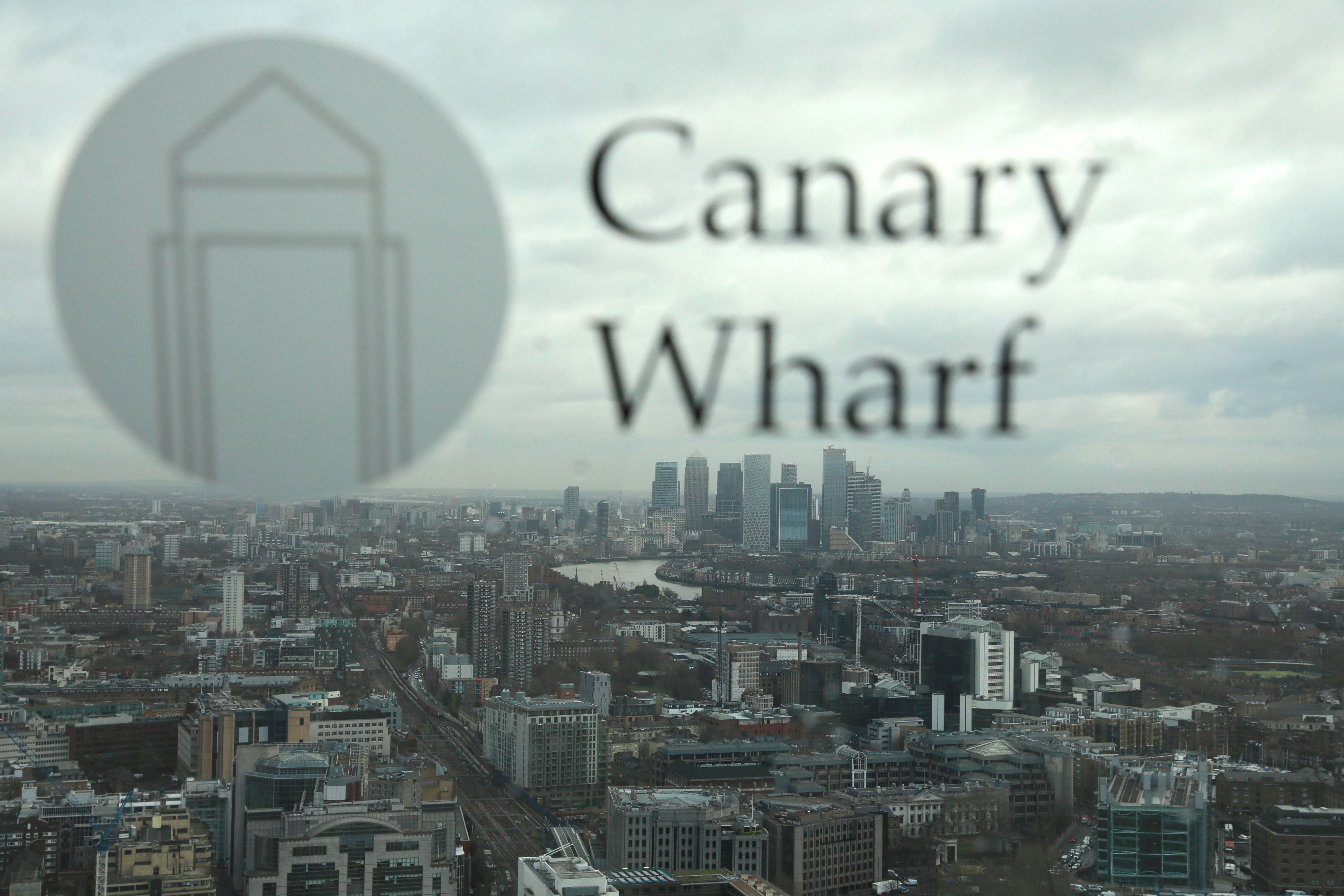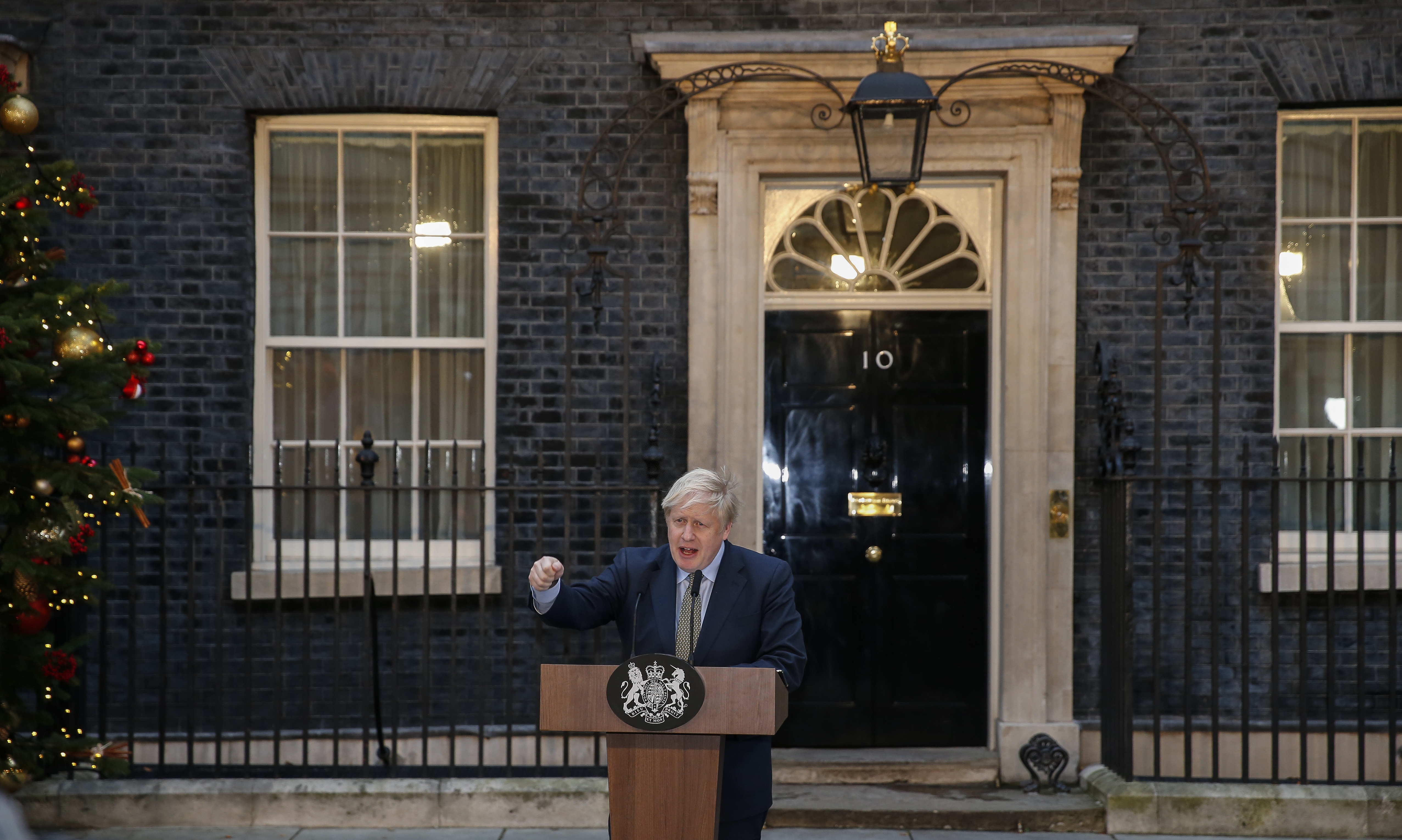Britain's 'Brexit' election
- By Michael Roberts and Heiko Khoo
 0 Comment(s)
0 Comment(s) Print
Print E-mail China.org.cn, December 18, 2019
E-mail China.org.cn, December 18, 2019

"Get Brexit done" proved to be a winning election slogan for PM Boris Johnson and his team. It convinced a substantial number of Labor voters who voted to leave the EU in 2016 to vote Tory. One-third of Labor voters in the 2017 election wanted to leave the EU, mainly in the midlands and north of England, as well as in small towns and communities that have few immigrants. They accepted the claim that poor living conditions and public services were due to the EU, immigration and the "elite" of London and the south.
Britain is the most geographically divided country in Europe and the election confirmed this "geography of discontent." Mortality rates vary more in Britain than in most developed nations. The disposable income divide is larger than any comparable country and has steadily increased over the past 10 years. The productivity divide is also larger than any comparable country.
The "leave" view was strong among those old enough to recall the "good old days" of English "supremacy" when "we were in control" i.e. before joining the EU in the 1970s. Once in the EU, Britain faced the volatile 1970s and the crushing of manufacturing and industrial communities in the 1980s. An influx of Eastern European immigrants (mainly to the large cities) in the 2000s was the last straw.
In the "remain capital" of England, London, Labor's vote held up as the "remain" party while the Liberal Democrats were squeezed. The Liberals did badly but still won a higher share of the vote (11.6%) than in 2017 (7.4%). The Conservative share of the vote rose only slightly from 2017 (42.3% to 43.6%), but Labor's vote slumped from 40% in 2017 to 32%. The overall turnout fell from 69% in 2017 to 67%, particularly in the Brexit areas. Indeed, the "no vote party" was the largest.
This was clearly a Brexit election. The Labor party had the most radical left-wing program since 1945 and the social and economic manifesto of the left Labor leadership was quite popular. Labor's campaign was energetic and much bigger than the other parties. But in the end, it made little difference. Brexit dominated and the Labor vote was squeezed. Not every voter wanted to "get Brexit done," but clearly enough voters wanted an end to delays, and to see the issue resolved.
Elections are often won or lost on the economy. This election was different. But even so, the measure of the "economic well-being" index (based on a mix of the change in real disposable income and unemployment rate) suggested an improvement since former PM Theresa May lost her majority in 2017. The economy at the level of investment and output may have been stagnating, but the average U.K. household was feeling slightly better off since 2017, with full employment and slight improvement in real incomes. That no doubt helped the Johnson government.

What now? The government under Johnson will now move quickly to pass legislation for the U.K. to leave the EU by end of January. Then the more tortuous process of agreeing to a trade deal with the EU will begin. That is supposed to be completed by June 2020, unless the U.K. asks for an extension. Johnson will try to avoid that and he can now make all kinds of concessions to the EU in order to get a deal done without the fear of a backlash from "no deal" Brexiters in his party, as he has won a big enough majority to see them off.
With the Brexit issue likely to be out of the way by this time next year, the British economy, which has been on its knees (due to the stagnation of GDP and investment), is likely to have a short pick-up. With "uncertainty" over, foreign investment may return, house prices will probably recover and with labor market tightening, wages may even pick up. The Johnson government may also steal some of Labor's proposals to boost public spending for a short period.
In the longer term, the future of the British economy looks dismal. All studies show that outside the EU, the British economy will slow compared to remaining in the EU. The degree of relative loss is estimated at between 4-10% of GDP over the next ten years, depending on the terms of the trade and labor deal with the EU. Also, it is still unclear how the financial services sector in the City of London will be hit. But this is all relative. So, if the U.K. grew at 2% a year in the EU, it would now grow at about 1.5% a year.
The joker in the pack is the global economy. The major capitalist economies are growing at the slowest rate since the Great Recession. And corporate profitability in the U.S., Europe and Japan is sliding, alongside rising corporate debt. The risk of a new world economic recession is at its highest since 2008. If a new global slump comes, the mood of the British electorate may change sharply; and the Johnson government's Brexit honeymoon may come to an end sooner than expected.
Michael Roberts is a London based Marxist economist. He published the "The Great Recession" in 2008 and "Essays on Inequality" in 2014.
Heiko Khoo is a columnist with China.org.cn. For more information please visit:
http://china.org.cn/opinion/heikokhoo.htm
Opinion articles reflect the views of their authors, not necessarily those of China.org.cn.
If you would like to contribute, please contact us at opinion@china.org.cn.





